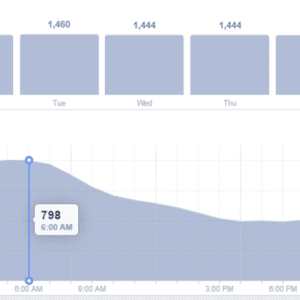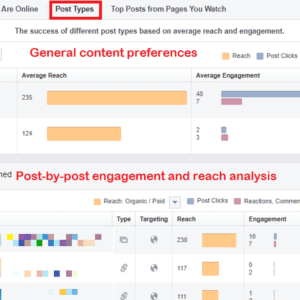How to Use Social Data to Launch a Successful Marketing Campaign

No matter what your marketing campaign will be about, it most likely will involve social media.
Social media plays a crucial role in launching a successful marketing campaign, first of all, due to the fact of how many people these platforms unite.
According to Statista, the overall number of social media users will reach 3.09 billion by 2021:

Image credit: Statista
The platforms that dominate according to the number of users are, of course, Facebook, YouTube, Instagram, and Twitter. They have the biggest number of daily visits, therefore, have more marketing potential.
Social media platforms are a great medium that supports communication between brands and social media users. The result of this interaction is social data, which social media platforms collect for marketing purposes.
The Nature of Social Data
Social data is big data that includes information shared by social media users. This information includes:
- age, gender, language, location, education, occupation details
- names, addresses, date of birth, etc.
- likes, shares, shared links, comments, etc.
You can divide all the social data into demographic, biographical, and feedback.
Social media platforms collect social data non-stop. As a result, you always receive data that is up-to-date. The purpose of social data is to observe and analyze user behavior and provide brands with insights that can be later used in a marketing campaign.
Benefits of Applying Social Data to Your Marketing Campaign
A Precise Choice of the Platform for Marketing
The abundance of social media platforms is the modern marketer’s biggest dilemma. It is very tempting to market a brand on all social media platforms to try and increase brand visibility.
But is it a smart move?
Using social media platforms for a marketing campaign requires producing content. To turn your marketing campaign into a success, your content needs to be of the highest possible quality.
If you choose to target every social platform in your marketing campaign, you won’t have enough time to produce good content. “In pursuit of more visibility, you may harm your brand’s online image,” says Martin Vaughn, a marketing specialist at Flatfy.
Here’s how social data can help you choose the platform for your marketing campaign.
Ask yourself who you want to target. Who’s the audience in your next marketing campaign?
To do that, create a target audience persona based on the following criteria:
Demographics Psychographics · Age · Gender
· Location
· Language
· Education
· Occupation
· Job level
· Income level
· Marital status
· Objectives · Challenges
· Hobbies and Interests
· Values
· Lifestyle
With this information at hand, you can now choose a social media platform that has the audience, which fits the description of your target audience person.
For instance:
- On Facebook, the audience is predominantly male (56% to 44%)
- Twitter has the same situation, with 62% male and only 38% female users.
- On Instagram, the division between male and female audiences is not as big as on Facebook, with 9% female and 49.1% male users.
- The same applies to YouTube, with 68% male and 67% female users.
You can also analyze social data according to age distribution and other demographic factors, which will help you make the final decision and pick the right platform for your marketing campaign.
- A Deeper Understanding of Your FollowersAfter choosing the platform that fits your marketing campaign, you can move on to social data that your followers shared on the social platform of your choice.There, in a social data analytics tool, you can find all their up-to-date demographic data:

Facebook Analytics
But, to make your marketing campaign successful, you need something beyond demographics. And, social data can help you with that.
In addition to demographics, you can also study social data that describes your audience’s main interests:

Twitter Analytics
For your social media campaign, you’ll need the information on when your followers are most active.

Facebook Analytics
This information will help you determine the time when your content will be able to engage as many followers as possible.
A Broader Variety of Content Ideas
Speaking about content, social data can also be of great assistance, helping you analyze your existing content and define the content type that will work best for your marketing campaign.
At the beginning of the article, we talked about feedback as one of the types of information that users share on social media. Social platforms record this feedback and turn it into social data:

Facebook Analytics
As a result, you get raw social data on general content preferences as well as a detailed description of post-by-post engagement and reach. This information brings obvious benefits to your future marketing campaign, as it helps you understand better, which content your audience expects you to produce, and which content will do best in your marketing campaign.
Launch a Successful Marketing Campaign with Social Data
Despite the benefits that we described earlier, social data does have certain limitations.
When using it, you should keep in mind that not all users are willing to provide their demographic, biographical information, or feedback.
Despite these limitations, social data is still a strong and viable tool that, if used correctly, can play a huge role in the success of your marketing campaign.









